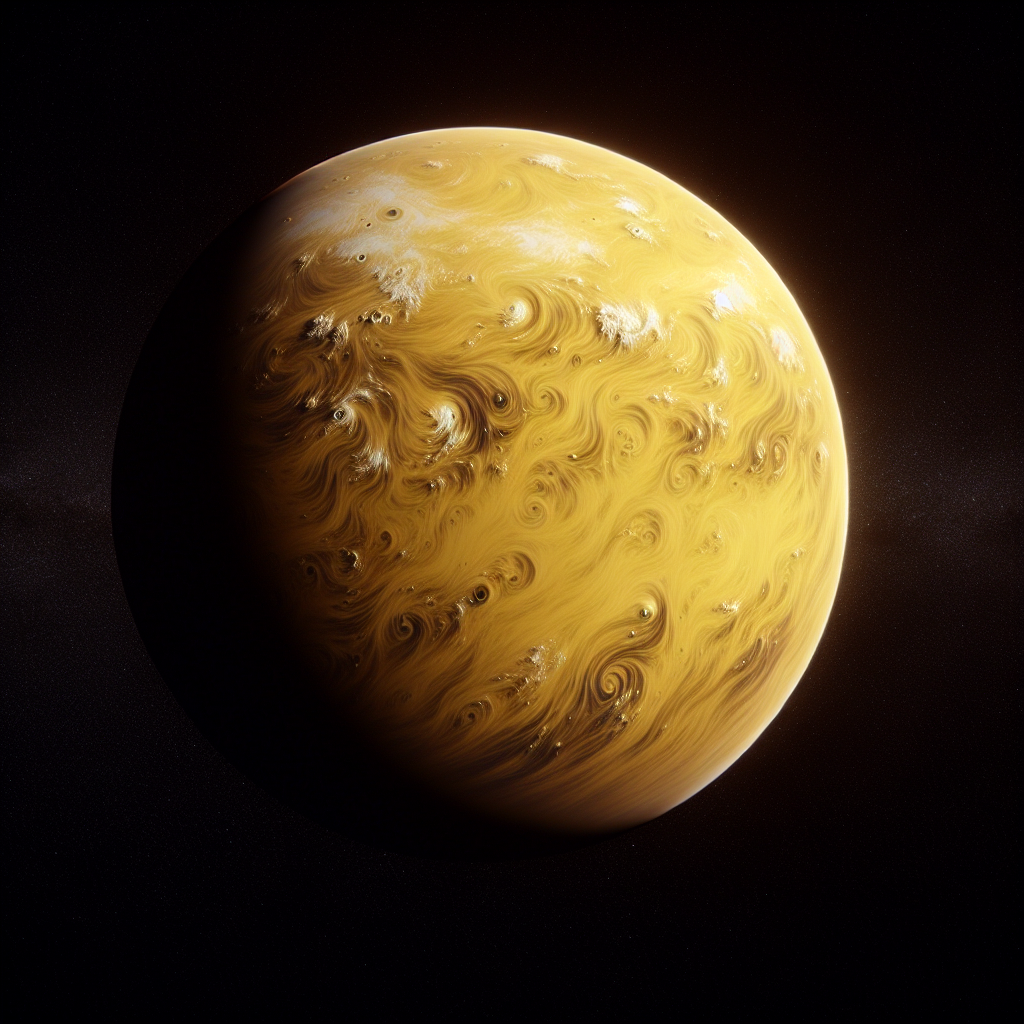
Oceans May Never Have Existed on Venus: A New Perspective
Introduction to the Enigma of Venus
For decades, the question of Venus’ aquatic history has fascinated scientists. Was this neighboring planet once home to vast oceans, making it a potentially habitable world? New research from the University of Cambridge has stirred the scientific community by suggesting a compelling answer: Venus may have always been a dry planet, devoid of liquid water on its surface.
The Findings of Cambridge Scientists
Researchers Tereza Constantinou, Oliver Shorttle, and Paul B. Rimmer at the University of Cambridge investigated the planet’s makeup and offered ground-breaking insights. According to their findings, Venus’ atmosphere has never been conducive to forming bodies of water. Their study suggests that instead of condensing into liquid form, any water on Venus likely stayed in the atmosphere as steam, primarily due to the planet’s extreme atmospheric conditions.
Key Findings Include:
- Venus has been dry throughout its history, contradicting the notion of past oceans.
- Venus’ interior lacks hydrogen, supporting its characterization as far drier than Earth’s.
- The intense heat and extreme pressure on Venus make it inhospitable to liquid water.
Venus: A Hostile Environment
Venus today is a hostile world, characterized by temperatures soaring up to around 465°C (869°F) and atmospheric pressure 90 times greater than that of Earth. The dense clouds of sulfuric acid further reinforce the planet’s inhospitable nature. This environment drastically differs from the habitable conditions that may have existed, as per earlier models from NASA’s Goddard Institute for Space Studies.
NASA’s 2016 Hypothesis
In 2016, NASA’s Goddard Institute proposed that Venus might have once been habitable. Using climate models analogous to those predicting Earth’s climate change, researchers speculated that Venus could have sustained oceans and a more Earth-like climate billions of years ago.
Michael Way, a researcher involved in the 2016 study, pointed out that “many tools used for modeling Earth’s climate change can be adapted to other planets.” These models suggested Venus might have once been markedly different. However, more recent studies, such as the one from the University of Chicago, have argued that Venus has been uninhabitable for over 70% of its existence.
Revisiting Venus’ Past
The debate around Venus’ watery history highlights the evolving nature of space research. Previous estimates varied widely, positing both a potential for past habitability and an inherently dry state. However, the latest Cambridge study focuses on the impossibility of planet-wide water bodies ever forming.
Contributing Factors to Earth’s Habitability
This research raises questions about what makes Earth conducive to liquid water retention, prompting further inquiry into unique planetary factors:
- Presence of Hydrogen: The abundance of hydrogen in Earth’s interior supports its oceans.
- Atmospheric Conditions: Earth’s moderate temperatures and pressure enable water in its liquid state.
- Magnetic Field: Protects the atmosphere from solar winds, unlike Venus.
Conclusion: What This Means for Future Research
The findings underscore the complexity of planetary science. Saturn’s rings, Mars’ rovers, and now Venus’ dry history reveal the unique aspects of the celestial bodies within our solar system. The study from Cambridge urges scientists to reconsider how planetary atmospheres and physical conditions inform potential habitability.
Future missions may delve deeper into Venus’ atmospheric studies. This ongoing quest for knowledge reminds us of the mysteries awaiting uncovering, informing both our understanding of planetary history and the eternal quest for life beyond Earth.
Stay tuned for more updates on space exploration and scientific discoveries as we continue to push the boundaries of what we know about our universe.
Source: https://news.sky.com/story/oceans-may-never-have-existed-on-venus-says-new-research-13265362


Your point of view caught my eye and was very interesting. Thanks. I have a question for you.
I don’t think the title of your article matches the content lol. Just kidding, mainly because I had some doubts after reading the article.